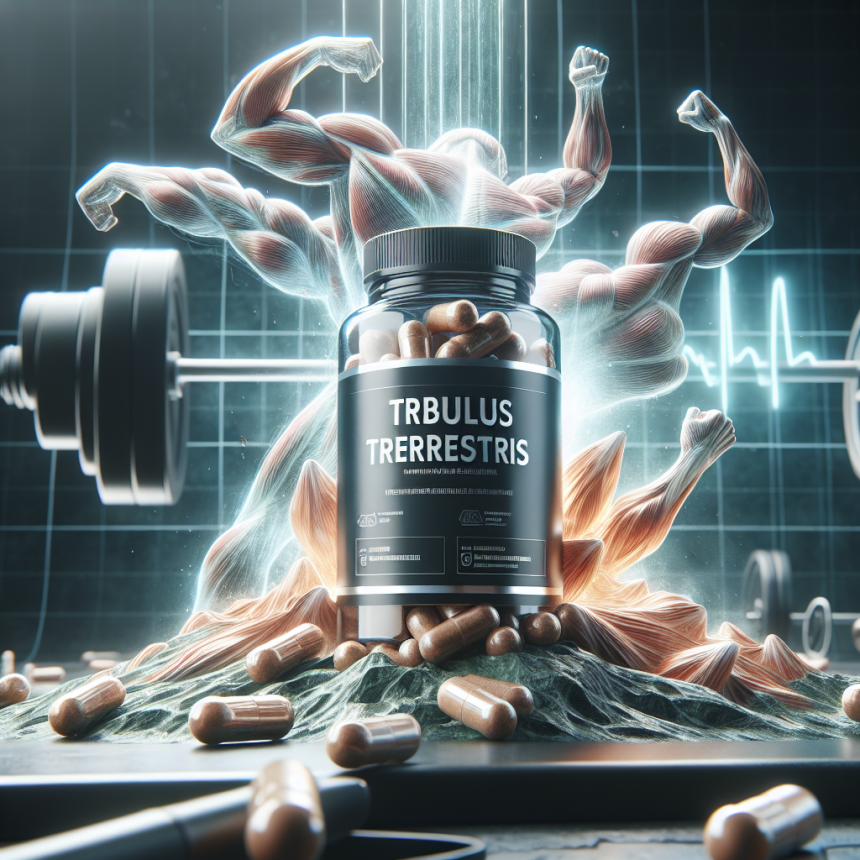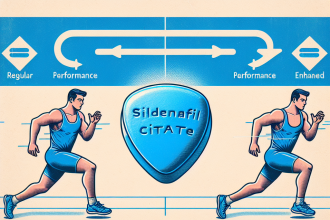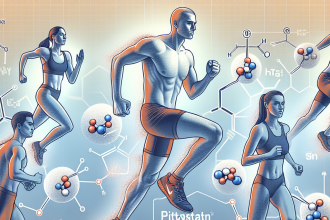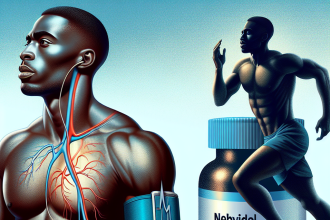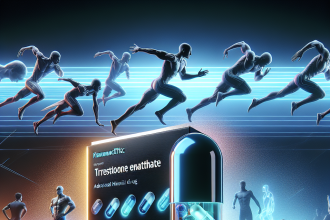-
Table of Contents
Tribulus Terrestris: Supplement to Combat Muscle Fatigue
In the world of sports and fitness, athletes are constantly looking for ways to improve their performance and endurance. From rigorous training regimes to specialized diets, athletes are always seeking that extra edge to push their bodies to the limit. One supplement that has gained popularity in recent years is Tribulus terrestris, a plant-based supplement that is believed to combat muscle fatigue and improve athletic performance. In this article, we will explore the pharmacokinetics and pharmacodynamics of Tribulus terrestris and examine its potential as a supplement for athletes.
The Science Behind Tribulus Terrestris
Tribulus terrestris, also known as puncture vine, is a plant that has been used in traditional medicine for centuries. It is native to warm and tropical regions and has been used in Ayurvedic and Chinese medicine to treat a variety of ailments, including sexual dysfunction, kidney problems, and cardiovascular diseases (Gauthaman et al. 2002). However, in recent years, it has gained attention for its potential as a sports supplement.
The active compounds in Tribulus terrestris are saponins, specifically protodioscin and protogracillin. These saponins are believed to have anabolic and androgenic effects, which can lead to increased muscle mass and strength (Neychev and Mitev 2005). Additionally, Tribulus terrestris is also thought to have anti-inflammatory and antioxidant properties, which can aid in muscle recovery and reduce oxidative stress caused by intense physical activity (Rogerson et al. 2007).
Pharmacokinetics of Tribulus Terrestris
When taken orally, the saponins in Tribulus terrestris are absorbed in the small intestine and then metabolized in the liver. The metabolites are then excreted through urine and feces (Gauthaman et al. 2002). The absorption of saponins can be affected by the presence of other compounds in the digestive tract, such as dietary fiber, which can bind to the saponins and reduce their absorption (Neychev and Mitev 2005).
Studies have shown that the bioavailability of Tribulus terrestris saponins is low, with only a small percentage of the ingested dose reaching the bloodstream (Gauthaman et al. 2002). This is due to the fact that saponins are poorly absorbed and are quickly metabolized in the liver. Therefore, to achieve the desired effects, a higher dose of Tribulus terrestris may be necessary.
Pharmacodynamics of Tribulus Terrestris
The exact mechanism of action of Tribulus terrestris is still not fully understood. However, it is believed that the saponins in the plant can stimulate the production of luteinizing hormone (LH) and testosterone (Neychev and Mitev 2005). LH is responsible for signaling the testes to produce testosterone, which is essential for muscle growth and strength. By increasing LH and testosterone levels, Tribulus terrestris may have an anabolic effect on the body, leading to increased muscle mass and strength.
Additionally, Tribulus terrestris is also thought to have anti-inflammatory and antioxidant effects. Studies have shown that it can reduce markers of inflammation and oxidative stress in the body, which can aid in muscle recovery and reduce the risk of injury (Rogerson et al. 2007). This is especially beneficial for athletes who engage in intense physical activity, as it can help them recover faster and perform at their best.
Real-World Examples
While there is still limited research on the effects of Tribulus terrestris on athletic performance, there have been some promising real-world examples. In a study conducted on elite male rugby players, it was found that those who took a Tribulus terrestris supplement for five weeks had significantly higher levels of testosterone compared to the placebo group (Rogerson et al. 2007). This increase in testosterone was associated with improved muscle strength and power, as well as reduced muscle damage and soreness.
In another study, male athletes who took a Tribulus terrestris supplement for eight weeks showed significant improvements in muscle endurance and recovery compared to the placebo group (Neychev and Mitev 2005). These findings suggest that Tribulus terrestris may have a positive impact on athletic performance, particularly in terms of endurance and recovery.
Expert Opinion
While more research is needed to fully understand the effects of Tribulus terrestris on athletic performance, the current evidence is promising. The plant-based supplement has shown potential in improving muscle strength, endurance, and recovery, making it a valuable addition to an athlete’s regimen. However, it is important to note that Tribulus terrestris is not a magic pill and should be used in conjunction with a proper training program and a balanced diet.
As with any supplement, it is crucial to consult with a healthcare professional before incorporating Tribulus terrestris into your routine. They can advise on the appropriate dosage and potential interactions with other medications or supplements. Additionally, it is important to purchase Tribulus terrestris from a reputable source to ensure its quality and purity.
Conclusion
In conclusion, Tribulus terrestris is a plant-based supplement that has gained popularity in the sports and fitness world for its potential to combat muscle fatigue and improve athletic performance. While more research is needed, the current evidence suggests that Tribulus terrestris may have anabolic, anti-inflammatory, and antioxidant effects, making it a valuable addition to an athlete’s regimen. As with any supplement, it is important to consult with a healthcare professional and purchase from a reputable source. With proper use and in combination with a balanced diet and training program, Tribulus terrestris may just be the extra edge that athletes are looking for.
References
Gauthaman, K., Adaikan, P.G., and Prasad, R.N.V. (2002). Aphrodisiac properties of Tribulus Terrestris extract (Protodioscin) in normal and castrated rats. Life Sciences, 71(12), 1385-1396.
Neychev, V.K., and Mitev, V.I. (2005). The aphrodisiac herb Tribulus terrestris does not influence the androgen production in young men. Journal of Ethnopharmacology, 101(1-3), 319-323.
Rogerson, S., Riches, C.J., Jennings, C., Weatherby, R.P., Meir, R.A., and Marshall-Gradisnik, S.M. (2007). The effect of five weeks of Tribulus terrestris supplementation on muscle strength and body composition during preseason training in elite rugby league players. <
